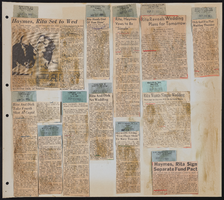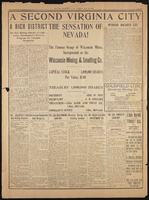Search the Special Collections and Archives Portal
Search Results

Transcipt of interview with John M. Beville by George Braver, March 11, 1981
Date
1981-03-11
Archival Collection
Description
George Braver interviews John M. Beville (b. 1906) at his home in Las Vegas on March 11, 1981. Braver discusses his move to Nevada in 1926, his personal history, and early banking in Nevada leading up to modernized banking. Beville also discusses his personal experience in the banking business, working in Hollywood as a singer, and brings to the forefront key moments of his life in Nevada.
Text
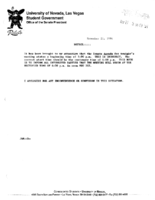
Meeting minutes for Consolidated Student Senate University of Nevada, Las Vegas, November 21, 1994
Date
1994-11-21
Archival Collection
Description
Includes meeting agenda and minutes, along with additional information about notices. CSUN Session 25 Meeting Minutes and Agendas.
Text
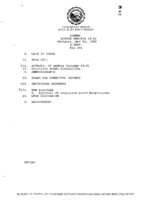
Meeting minutes for Consolidated Student Senate University of Nevada, Las Vegas, May 11, 1989
Date
1989-05-11
Archival Collection
Description
Includes meeting agenda and minutes. CSUN Session 19 Meeting Minutes and Agendas.
Text
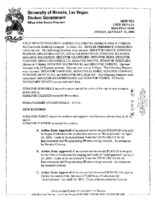
Meeting minutes for Consolidated Student Senate, University of Nevada, Las Vegas, January 09, 2004
Date
2004-01-09
Archival Collection
Description
Includes meeting minutes. CSUN Session 34 Meeting Minutes and Agendas.
Text
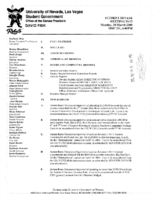
Meeting minutes for Consolidated Student Senate, University of Nevada, Las Vegas, March 20, 2000
Date
2000-03-20
Archival Collection
Description
Includes meeting minutes and agenda. CSUN Session 30 (Part 1) Meeting Minutes and Agendas.
Text
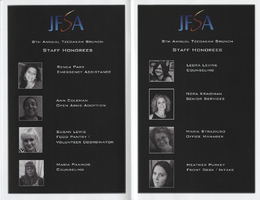
Pamphlet from the 8th annual Jewish Family Service Agency Tsedakah event, 2015
Date
2015
Archival Collection
Description
This pamphlet contains statistics about Jewish Family Service Agency services provided to the community, and sponsorship advertisements from local businesses.
Text
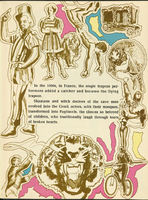
Souvenir program and guide for Circus Circus, 1971
Date
1971
Archival Collection
Description
The souvenir guide and program to Circus Circus features descriptions of the entertainment acts performing at the hotel/casino.
Text
Pagination
Refine my results
Content Type
Creator or Contributor
Subject
Archival Collection
Digital Project
Resource Type
Year
Material Type
Place
Language
Records Classification


